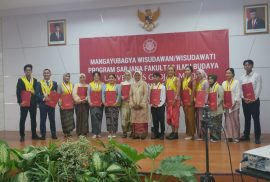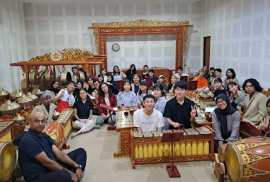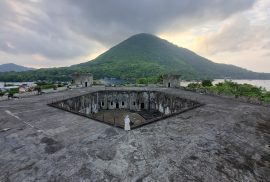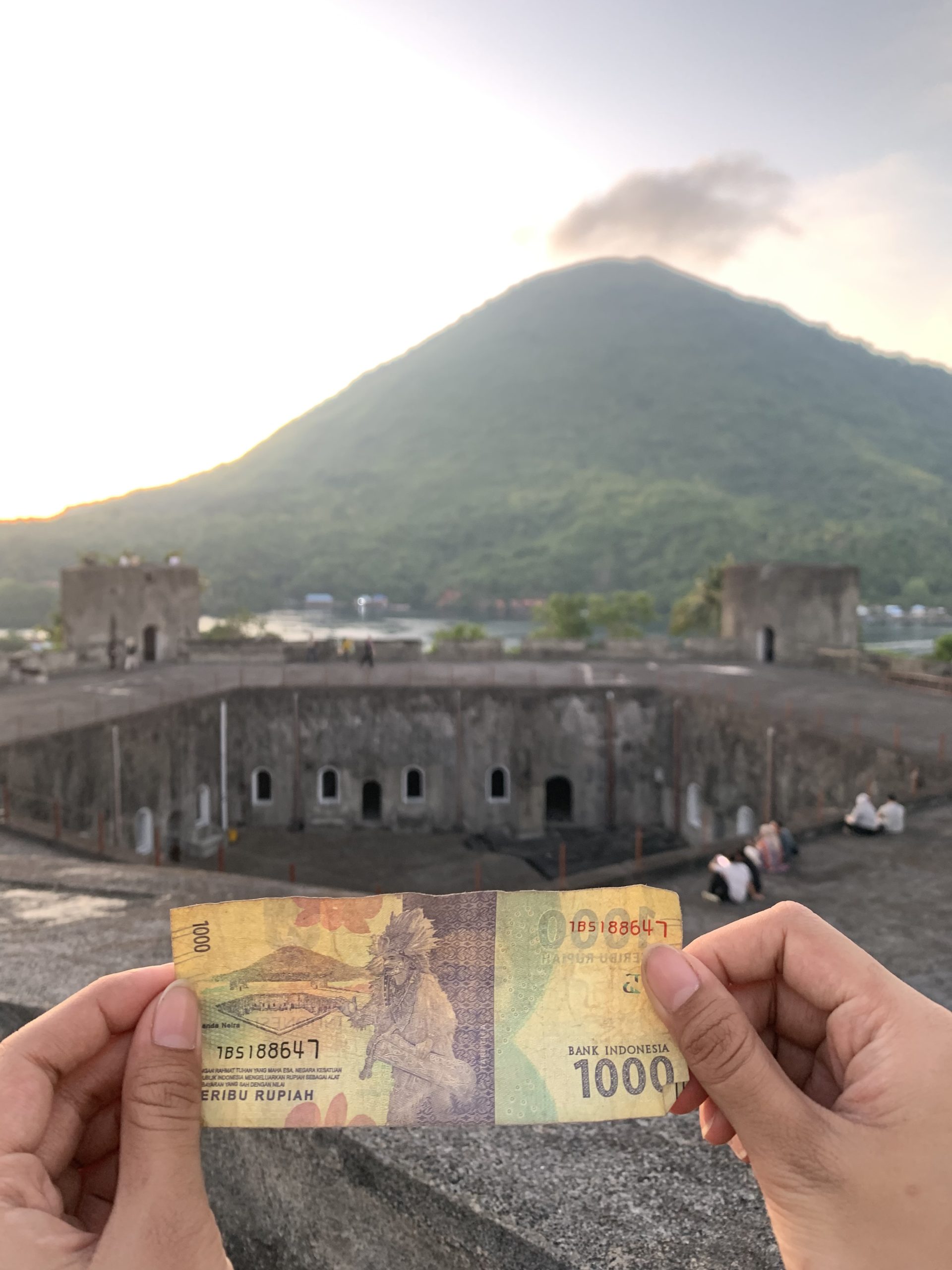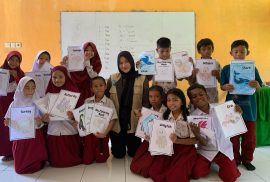SDGs 4: Quality Education
Wednesday, February 21, 2024, marked an unforgettable day for 140 graduates of the Faculty of Cultural Sciences, Universitas Gadjah Mada (UGM), where they proudly received their new titles as Bachelor’s degree. The event was attended by the Dean of the Faculty of Cultural Sciences, Prof. Dr. Setiadi, S.Sos., M.Si, the Vice Dean for Finance, Assets, and Human Resources, Suray Agung Nugroho, S.S., M.A., Ph.D., and representatives from each department and study program within the Faculty of Cultural Sciences.
In this graduation period, Mutiara Cantikan, a student of the Cultural Anthropology Study Program, achieved the highest GPA of 3.99, followed by Garin Arivian Muhammad with a GPA of 3.96 from the Arabic Literature Study Program.
The event began with a welcoming speech from Prof. Dr. Setiadi, S.Sos, M.Si. He also gave some advice on the importance of considering the past as a source of learning and emphasized the need to look forward. The first step, he mentioned, is to finish the things in front of us. This graduation ceremony signifies the success from the efforts in the previous years. The program continued with an entertaining performance of the Būchaechum dance by students from the Korean Language and Culture Study Program, who are part of the Dōngari Student Activity Unit. The ceremony was closed with a prayer led by Hamdan, S.S., M.A.
Congratulations to all the graduates! A bright future awaits you!

